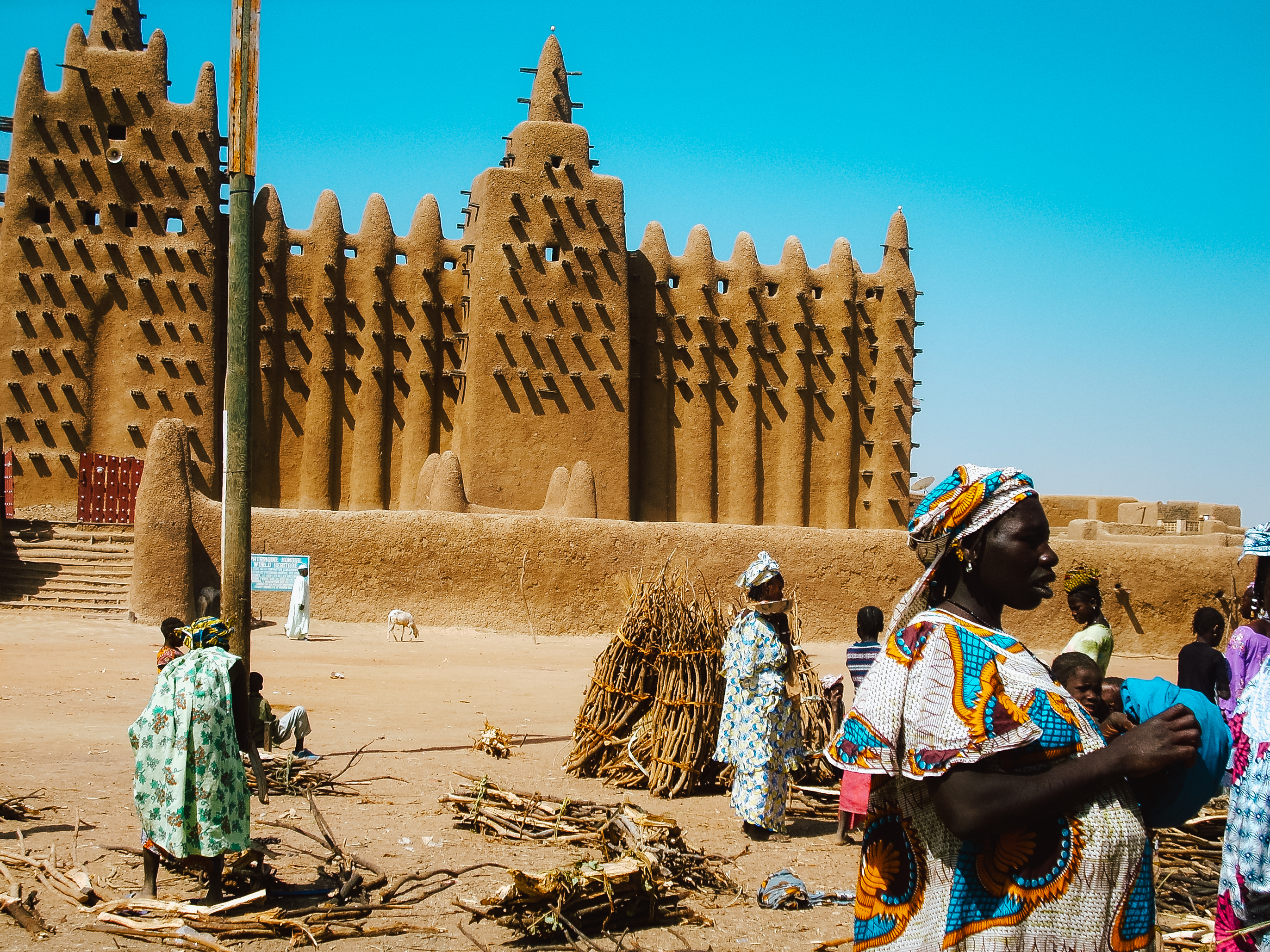Timbuktu is often evoked as a symbol of an impossibly distant, almost mythical place. The phrase “from here to Timbuktu” conjures the image of a journey stretching endlessly beyond the horizon, a long way from home.
ADVERTISEMENT
In a surprising number of people’s imaginations, it is just that: a fictional, indeterminate land. A 2006 survey of 150 young people in the UK found that 34 percent did not believe Timbuktu existed, while 66 percent considered it “a mythical place.”
However, Timbuktu is a real place. It’s an ancient city in Mali on the edge of the Sahara in West Africa. The reason it is so famous – and often linked to thoughts of a legendary, faraway place – is its profound impact on world history and its association with tales of gold.
During the 15th and 16th centuries, Timbuktu flourished as a hub of wisdom, wealth, and faith. Through its great mosques and grand public spaces, Islamic thought and culture rippled out of Timbuktu across Africa, leaving a legacy that still lives today. At its peak, the city was home to 100,000 people, attracting scholars and pilgrims from around the Muslim world.
The city became a prized center for Mansa Musa, the legendary 14th-century ruler of the Mali Empire, whose staggering wealth – built on the thriving gold trade – made him one of the richest figures in history. Some modern estimates put his worth at around $400 billion, which for a long time made him the richest human to ever live (a title that has since been swiped by Elon Musk).
Recognizing its profound impact on world history, UNESCO designated Timbuktu as a World Heritage Site in 1988. Today, the city still holds onto its rich heritage through three grand mosques – Djingareyber, Sankore, and Sidi Yahia – and sixteen mausoleums. Despite challenges such as desertification, poverty, and past conflicts, efforts continue to maintain and restore these beautiful monuments.

I’m still standing: A modern-day view of the Timbuktu in Mali, Africa.
Image credit: Tremens Productions/Shutterstock.com
It’s unclear when this city became synonymous with a faraway place, although it rose to prominence among writers in the 19th century. A poem written in 1829 by Alfred Tennyson entitled “Timbuctoo” speaks of “mystery”, “strange music on the howling winds”, and a “remote Paradise.”
The association with mystery and wealth can be tied back to some of the early interactions between Africa and Europe. Prior to colonization, most European knowledge of Africa came from a 1526 book called Cosmographia et geographia de Affrica by Leo Africanus, who wrote about the “rich treasure” of Timbuktu and how they used “pure gold nuggets” as currency.
Historians have suggested that the British, among other Europeans, envisioned Timbuktu as an African counterpart to El Dorado, a mythical city of gold believed to exist in South America (spoiler: it probably didn’t exist). The city’s extreme remoteness and the challenges inherent in reaching it only heightened its allure among European explorers.
Unfortunately, by the time they had reached the famed city, it had fallen from grace and was far from the grand, gold-plated paradise they had imagined. Though no longer the golden city of legend, Timbuktu remains a place of profound historical and cultural significance, its legacy still embedded in the everyday lexicon of English speakers around the world.
Source Link: You Have Heard Of Timbuktu, But Do You Know Where It Is?